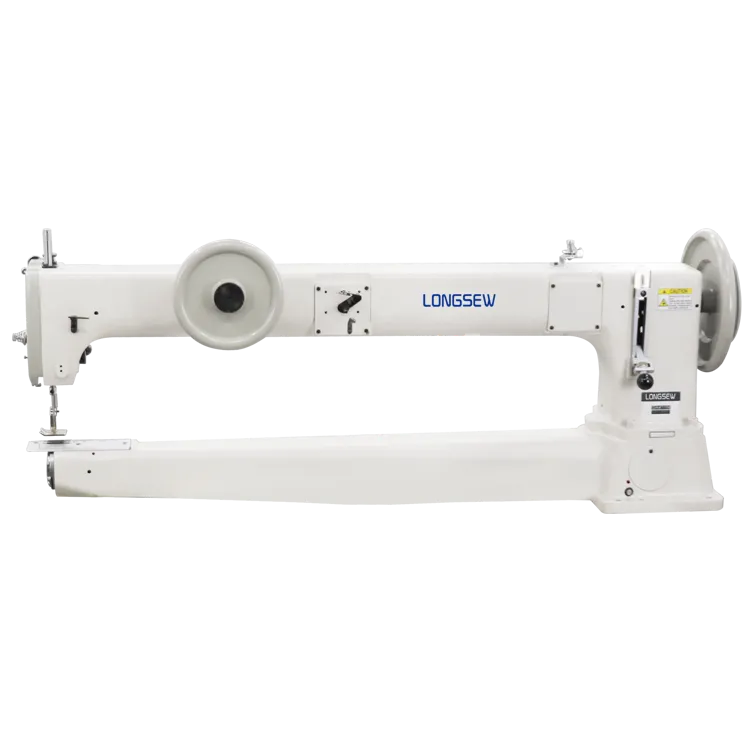Choosing the Right Sewing Machine for Both Fabric and Leather Projects
Choosing the Right Sewing Machine for Fabric and Leather
Sewing has been a beloved craft and essential method of creating textiles for centuries. Today, with the wide variety of materials available, choosing the right sewing machine can become a daunting task, especially for those looking to work with both fabric and leather. Whether you are a DIY enthusiast or a professional, understanding the differences in sewing machines can help you make an informed decision.
Understanding Fabric vs. Leather
Before delving into the specifics of sewing machines, it's crucial to understand the characteristics of fabric and leather. Fabrics, which can be made from natural fibers like cotton or synthetic materials like polyester, are generally more forgiving and easier to sew. They typically have a certain degree of stretch and are available in a multitude of designs and textures.
On the other hand, leather – whether genuine or synthetic – poses unique challenges due to its thickness, rigidity, and tendency to slip while being sewn. Using the incorrect type of sewing machine or needle can lead to damaged materials or subpar results. Therefore, selecting a sewing machine that can handle both types of materials is essential.
Key Features to Look For
When shopping for a sewing machine capable of handling both fabric and leather, consider the following features
1. Powerful Motor Look for a sewing machine with a powerful motor that can handle thicker materials like leather without stalling. A motor with at least 1.0 amp is a good baseline, but some high-quality machines go beyond this.
2. Walking Foot or Teflon Foot These specialized presser feet help grip the surface of leather and keep it from slipping. While regular presser feet may work adequately for most fabrics, they often fail when it comes to working with leather.
sewing machine for fabric and leather

3. Adjustable Presser Foot Pressure This feature allows you to adjust the amount of pressure applied to the fabric. When working with thick materials like leather, reducing the pressure can prevent damage and allow for smoother feeding.
4. Heavy-Duty Needles Ensure the sewing machine comes with or allows for the use of heavy-duty needles specifically designed for leather. Common options include size 90/14 or even 100/16 needles that can penetrate tough materials without breaking.
5. Stitch Variety A wide range of stitch options can enhance your projects, particularly when working with fabric. Look for machines that offer straight, zigzag, and decorative stitches. For leather projects, a straight stitch is typically preferred due to its strength.
6. Robust Build Quality When working with leather, a sewing machine with a sturdy metal frame is ideal. This ensures stability and reduces vibrations that could misalign your stitches.
Recommended Machines
Some sewing machines stand out in the market for their versatility and capability to handle both fabric and leather. Models such as the Brother Heavy Duty Sewing Machine or the Singer Heavy Duty 4423 are well-regarded for their robust features and performance with various materials. The Janome HD3000 is another excellent option, known for its ease of use and durability.
Conclusion
Selecting the right sewing machine is vital for anyone looking to explore the worlds of fabric and leather crafting. Investing in a machine equipped with the necessary features can make a substantial difference in the quality of your projects. Focus on models that provide versatility, power, and durability, and you’ll be well on your way to creating beautiful, lasting pieces, whether they are soft fabric garments or strong leather goods. With the right tools at your disposal, the possibilities are endless in your sewing journey.
-
Industrial Cylinder Arm Sewing Machine: Revolutionizing Heavy-Duty SewingNewsJul.28,2025
-
Cylinder Arm Sewing Machine: Perfect for Special Sewing ApplicationsNewsJul.28,2025
-
Cylinder Bed Sewing Machine: Essential for Sewing Complex MaterialsNewsJul.28,2025
-
Heavy Duty Sewing Machine: The Essential Tool for Industrial ApplicationsNewsJul.28,2025
-
Computerized Pattern Sewing Machine: Revolutionizing Precision StitchingNewsJul.28,2025
-
Heavy Duty Industrial Sewing Machine: Power Meets PrecisionNewsJul.28,2025
-
Leather Sewing Machine: The Industrial Standard for Tough MaterialsNewsJul.18,2025





























